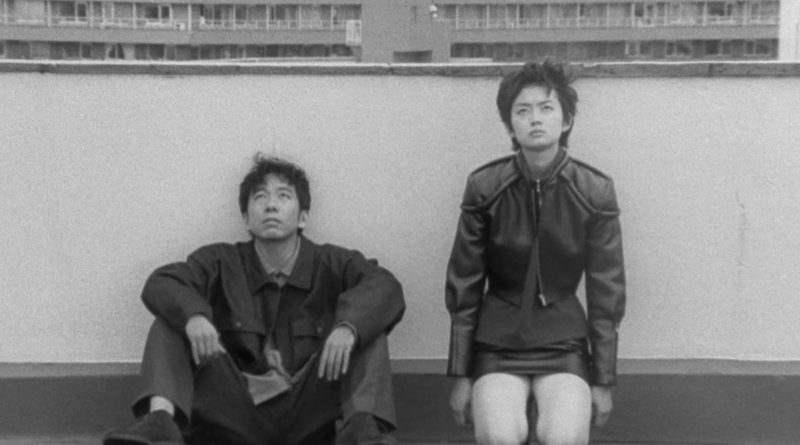‘Bullet Ballet’ Review: A Disappointing Dance
The next stop on my journey through Shinya Tsukamoto‘s filmography is his 1998 drama Bullet Ballet. I say drama because, even with such a great title, Bullet Ballet is unfortunately short on bullets and action in general. It is very well made and offers some compelling moments, but those who have seen Tsukamoto’s earlier work will find this to be something of a retread that lacks the manic energy and creativity of Tetsuo and Tokyo Fist.
The film follows Goda (Tsukamoto), a video editor whose long-term girlfriend commits suicide by shooting herself. Horrified and wracked with guilt, he then becomes obsessed with guns and sets out to find a firearm of his own so that he may kill himself in the same manner. His journey to get a weapon causes him to cross paths with various local street gangs and become embroiled in their conflicts. One of the major plot points that may be lost on American audiences is the rarity of firearms in Japan. Guns are very illegal and very hard to come by in Japan, and as a result, they take on an extra significance that seems strange to Americans who are used to firearms being plentiful. Goda’s quest to get a gun goes through several false starts, causing him at various points to be scammed, robbed, threatened, and beat up.
Much like Goda’s journey has several false starts, so does the story as a whole. His interactions with the various street fans and their troubles are interesting at first, but fail to coalesce into much of interest. The film often finds itself struggling to gather momentum and when it does, it is generally unsuccessful in carrying it very far. There are interesting side characters like the young, brash gang-leader Goto and his love interest with a death wish, Chisato, but they, like the protagonist, are often struggling to find something interesting to do. Another issue with the story is that Goda is often reduced to a passive agent in events, merely witnessing things without really participating.
While the story is a disappointment, the film does boast its fair share of style and ingenuity, even it it is a far cry form some of Tsukamoto’s other works. While there is little in the way of action, there are a couple major scenes (a street fight, a foot chase, and a Taxi Driver-esque shootout) that are all very captivating from a technical standpoint while often defying the cinematic conventions that are normally associated with such scenes. The characters are all captivating as well. Messy, complex, and occasionally impenetrable, they deserve a better drama than the one they are given.
In the end, Bullet Ballet is, ironically, not about guns at all. Ultimately the film seems to be about finding purpose and meaning in ones life. Goda’s girlfriend committed suicide because she felt, as she puts it, like a kite with no string, adrift in a meaningless world. In turn, Goda, Chisato, and Goto must go on their own journeys to find something worth living for, or else they will make their own personal death wishes come true. It’s an interesting and thoughtful premise although it would have benefitted from better execution.




